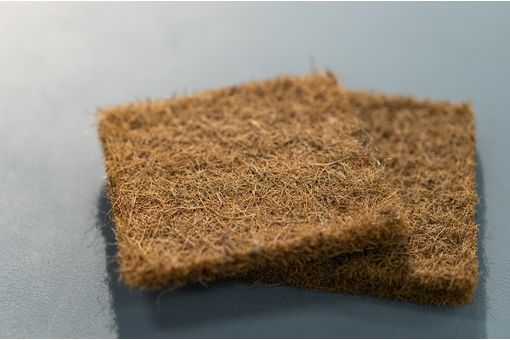Interviews
Statement from 67th Plenary Session of ICAC at Burkina Faso
21 Nov '08
9 min read
Scientists reported that agricultural biotechnology is one of many tools available for improving crop productivity and the environmental sustainability of agriculture. When used appropriately, biotechnology can offer many benefits, including effective control of certain pests, reduced yield losses from insect damage, and reductions in applications of insecticides, resulting in additional income to farmers. Scientists reported that no negative impacts on human health and the environment from the use of biotechnology in cotton have been documented in any country.
It was reported that one of the main hurdles to the introduction of biotech cotton is that some countries have not established biosafety frameworks needed to regulate testing, distribution and use of such crops. Harmonizing regulations and standards regarding commercialization of biotech products could facilitate enabling environments that give farmers access to these beneficial tools for production enhancement.
3. Technology Transfer Contributes to Industry Development:
The Committee agreed that cotton industry development is dependent on the quality of training received by extension agents and farmers. There was an understanding that technology transfer and market advice require a partnership between the public sector, private sector and nongovernment organizations (NGOs). In a majority of cases, the public sector will have to play a predominant role in developing countries. The Committee was informed that in most cases, Farmer Field Schools combined with demonstration plots, are the most effective form of communication with smallholders.
4. Social, Environmental and Economic Performance of Cotton Production: The Committee received a report from its Expert Panel on Social, Environmental and Economic Performance of Cotton Production (SEEP). The Panel has completed a review of the existing literature on the social impacts of cotton production and has gathered a substantial body of statistics on input use and labor conditions in the cotton industry.
The Committee agreed that the work of the Panel should continue. It was agreed that the Panel will prepare a study on the comparable salary, benefit and welfare costs, including housing, transport, schools and other social costs, and taxes associated with cotton production. The Panel will also expand efforts to gather objective information about the impacts of biotech cotton so as to provide fact-based information to governments. It was agreed that the Panel was asked to study the evolution of labor practices associated with cotton production in light of recent technological developments.
It was also agreed that the Panel will discuss approaches and best practices in minimizing negative social impacts in cotton cultivation with other organizations striving for improved cotton production practices, with the objective of harmonizing the social standards and recommendations being developed. The Panel noted its financial limitations and stated that it will formulate budgets for these items and seek guidance from the Standing Committee to prioritize their work.
It was reported that one of the main hurdles to the introduction of biotech cotton is that some countries have not established biosafety frameworks needed to regulate testing, distribution and use of such crops. Harmonizing regulations and standards regarding commercialization of biotech products could facilitate enabling environments that give farmers access to these beneficial tools for production enhancement.
3. Technology Transfer Contributes to Industry Development:
The Committee agreed that cotton industry development is dependent on the quality of training received by extension agents and farmers. There was an understanding that technology transfer and market advice require a partnership between the public sector, private sector and nongovernment organizations (NGOs). In a majority of cases, the public sector will have to play a predominant role in developing countries. The Committee was informed that in most cases, Farmer Field Schools combined with demonstration plots, are the most effective form of communication with smallholders.
4. Social, Environmental and Economic Performance of Cotton Production: The Committee received a report from its Expert Panel on Social, Environmental and Economic Performance of Cotton Production (SEEP). The Panel has completed a review of the existing literature on the social impacts of cotton production and has gathered a substantial body of statistics on input use and labor conditions in the cotton industry.
The Committee agreed that the work of the Panel should continue. It was agreed that the Panel will prepare a study on the comparable salary, benefit and welfare costs, including housing, transport, schools and other social costs, and taxes associated with cotton production. The Panel will also expand efforts to gather objective information about the impacts of biotech cotton so as to provide fact-based information to governments. It was agreed that the Panel was asked to study the evolution of labor practices associated with cotton production in light of recent technological developments.
It was also agreed that the Panel will discuss approaches and best practices in minimizing negative social impacts in cotton cultivation with other organizations striving for improved cotton production practices, with the objective of harmonizing the social standards and recommendations being developed. The Panel noted its financial limitations and stated that it will formulate budgets for these items and seek guidance from the Standing Committee to prioritize their work.
Popular News
Leave your Comments
Editor’s Pick
C Devarajan & P Raajashekar
Texvalley
































-Ltd..jpg?tr=w-120,h-60,c-at_max,cm-pad_resize,bg-ffffff)





.jpg?tr=w-120,h-60,c-at_max,cm-pad_resize,bg-ffffff)
.jpg?tr=w-120,h-60,c-at_max,cm-pad_resize,bg-ffffff)






